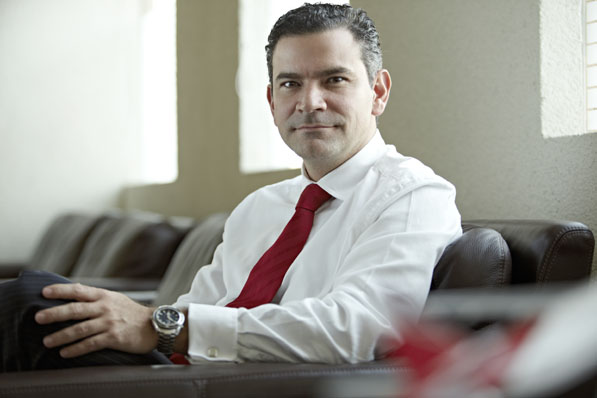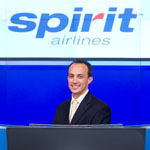Commanding a fleet of 144 aircraft, executive VP and COO Estuardo Ortiz has flown Avianca up the ranks to become one of the top airlines in the world
Estuardo Ortiz is one of the major players in the aviation game. As the executive vice president and chief operating officer of Bogota, Colombia-based Avianca, he commands a fleet of 144 aircraft, which reach more than 150 cities across the globe. “We are the largest Latin American carrier in the continent and fly to more international destinations than anyone else,” he boasts.
Ortiz joined TACA Airlines in 2005 after years of international management positions with Phillip Morris International and Kraft Foods International, positions that took him across the globe. A native of Guatemala, Ortiz’s worldview was in part shaped through his experience with those organizations, in addition to his continuing-education studies abroad. He attended business classes in the United States at the University of Virginia and the University of Chicago, home to two of the most prestigious business schools in the world. “Through those opportunities, I was able to get to see how business practices of different industries could be applied to the airline industry,” he says.

Ortiz had the wisdom to understand that, in order to compete on a global scale, Latin American airlines had to band together. “We cannot operate on the same scale as US airlines; we cannot compete if we worked individually,” he says. “Each of our airlines had to band together as a group to survive. | Photo: Memo Vela Jessica
TACA merged with former competitor Avianca in February 2010 to form AviancaTaca, an airline holding company composed of several individual airlines: Avianca, TACA International, Lacsa, TACA Peru, Tampa Cargo, Aerogal, Sansa, and Isleña. Starting in early 2013, the airlines began operating as a single brand: Avianca. Since the merger, the company has grown into a $4.2 billion operation, with hubs in Peru, Costa Rica, Colombia, Ecuador, and El Salvador. Also, it has recently become a member of the Star Alliance, which includes Air Canada, US Airways, United Airways, Lufthansa, and more. Amidst this growth, the company’s employees have followed suit: the staff has grown from 14,000 to 17,000 people and now operates and directly serves all countries in the Americas as well as Spain.
“We exemplify the warmness, the kindness, and the passion of the Latin American culture—that makes being one of our customers a truly special experience,” Ortiz says. “We want our customers to recognize that we are a high-quality operating company, that they can depend on arriving on time, and that check-in will always be efficient.”
As a large carrier based in Central and South America, Avianca finds itself in a unique position within the international business world, as it operates multinational hubs and must compete with carriers based in North America and Europe. “The US airlines are always US-based and regulated by the FAA,” Ortiz explains. “As Latin American carriers, we cannot operate on the same scale as them; we cannot compete if we worked individually. Each of our airlines had to band together as a group to survive.”
Global Guide
Estuardo Ortiz’s tips for navigating the airline business in the global marketplace
Work with international governments in order to ensure that all requirements are met—not just the requirements of your own country.
Celebrate your heritage—it’s what sets you apart from your competitors.
Surround yourself with a hardworking team composed of colleagues with international sensibilities and keen business savvy.
Despite the fact that it is headquartered in a different continent, Avianca decided to register its aircraft in the United States in order operate within the regulations of the FAA. “In the United States, it is easier for carriers to merge, since they are under the same regulation. But because we operate out of several countries, we had to come up with solutions that allow us to operate these airlines as one. From the regulator perspective, being registered in the United States allows us to interchange aircraft. It’s how we cope with the fact that we are, in reality, five different carriers operating in five different countries and we also comply with all local regulatory requirements,” he says.
Each aspect of the company is regulated under the same guidelines that major American and European carriers follow. “Everything is regulated; we harmonize to the highest level of requirements,” Oritz says. “We set the bar to the highest level. This saves significant cost and allows us to interchange aircraft among our operating airlines.”
Currently, Avianca’s logistic operations, including the operating control center and IT, are located in El Salvador, while all of the corporate offices are headquartered in Colombia. Despite the company’s international operation, Ortiz says that he and his fellow executives are grateful that the headquarters are located in Latin America. “We have a unique approach to marketing and branding—we celebrate our Latin heritage and focus on building a world-class reputation,” he says

